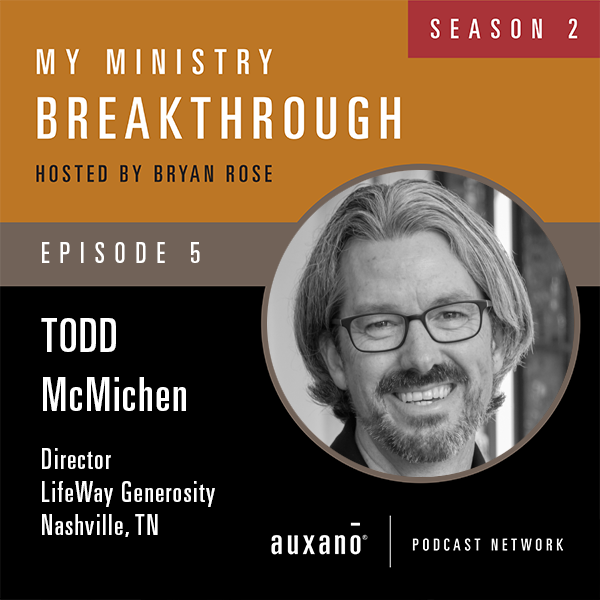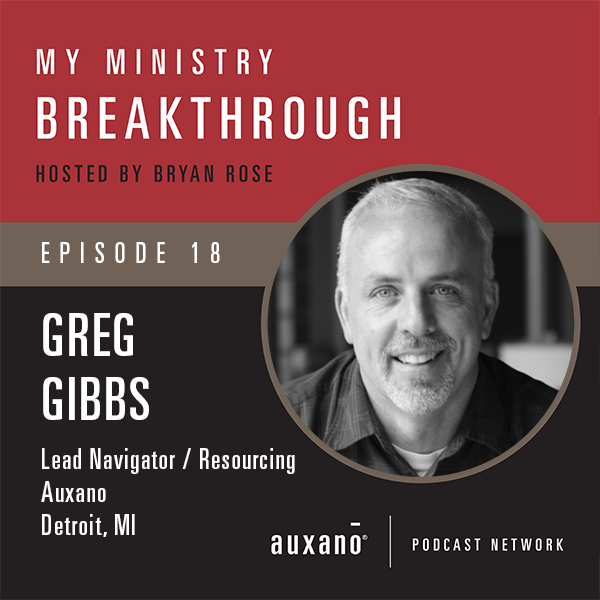2_05: Todd McMichen – Get ready to receive an alpaca: a generational look at generosity
Breakthrough ideas with Todd:
- 74% of churches have online giving, but they only receive about 15% of their income through digital avenues.
- 90% of our personal wealth is contained in our assets not in liquid cash – what if your church had a way to enable generosity in this way?
- What happens if you’ve got one alpaca too many?
- What does a generous human being look like?
- What would it be like to have a church filled with generous people?
- Lifeway Generosity is turning every smartphone into an offering plate.
- Your members are giving above and beyond dollars every single week to somebody… why not the church.
- The outside the church around generosity has completely changed from 20 years ago.
- So 20 years ago as leaders in the church we have been afraid to talk about money because that’s a personal private matter, that’s changed.
- Millennials are very generous, and they are socially generous.
- if the church is going to catch up, we have got to be more confident in socializing generosity.
- If a millennial is in worship on Sunday morning and you’re welcoming them, and you go through the entire worship service, and you’ve not told them the power of a dollar given to your local church, the difference it’s making, you’re turning them off.
- Any time we’re about to pass the plate, anchor the moment in what your people can become by giving and tell a story of what the giving is doing.
- The millennial generation doesn’t see different types of generosity differently. So serving generosity is equal to financial generosity.
- 84% of millennials, on average, are giving to nonprofits. And when they give, they give almost $500 annually, and they give to three different nonprofits.
- The millennial generation is generous. They’re just not giving in ways the church has readily acknowledged and accepted easily.
- Every generous church we find is led by a generous pastor
- We didn’t learn how to raise money and disciple people in their generosity in seminary. Here’s what to do.
- Sometimes exegeting somebody’s life situation and helping them understand how generosity affects their relationship with Christ is as important.
- What would you do if you had to cut 25% out of your budget next year?
- Every first time givers was at some time a first time guest. Hospitality impacts generosity.
- You can’t turn on joy across the congregation 30 seconds before the offering plate passes, joy starts in the parking lot.
- Those churches that really welcome people well, seem to be some of those churches that are overflowing with generosity
- When a church raises this budget 5% in advance, they start the fiscal year out, it’s behind, but everybody’s spending.
- Instead of creating a 105% budget, what if you did 98%? It changes the game for you. So you’re not actually spending less, it’s just a completely different way of thinking and feeling about it.
- There is a massive problem that pastors are unaware of. Total giving has flat-lined or a little bit up, but the number of givers is on dramatic decline.
- Attendance is going down, but giving is staying the same.
- We are going to lose 10 million givers in the Boomer generation. You can’t stop that from happening. You don’t know it’s happening.
- Should a pastor know how much someone gives or doesn’t give? And how do we disciple the key donor?
- The number one missing ingredient in the budget process is a yearly goal.
Breakthrough resources in this episode:
The Genius of Generosity by Chip Ingram
Webinar: Your Most Welcoming, Generous Christmas Yet!
Todd McMichen has served local churches for over 30 years in a variety of roles from small rural congregations to church plants to mega-churches. His generosity roots rise from leading multiple capital campaigns for two churches where he served as a staff member, raising over $35,000,000 for their visionary projects. Since 2000, Todd has been a well-established stewardship coach, generosity leader, author, and conference speaker. He now serves as the Director of LifeWay Generosity & Digital Giving. Todd is a graduate of Palm Beach Atlantic College in West Palm Beach, Florida and Southwestern Seminary in Ft. Worth, Texas. He lives in Birmingham, Alabama with his wife, Theresa. Visit Todd’s blog at toddmcmichen.com or follow him on twitter @toddmcmichen.

Podcast: Play in new window | Download
Subscribe: Apple Podcasts | RSS | More
